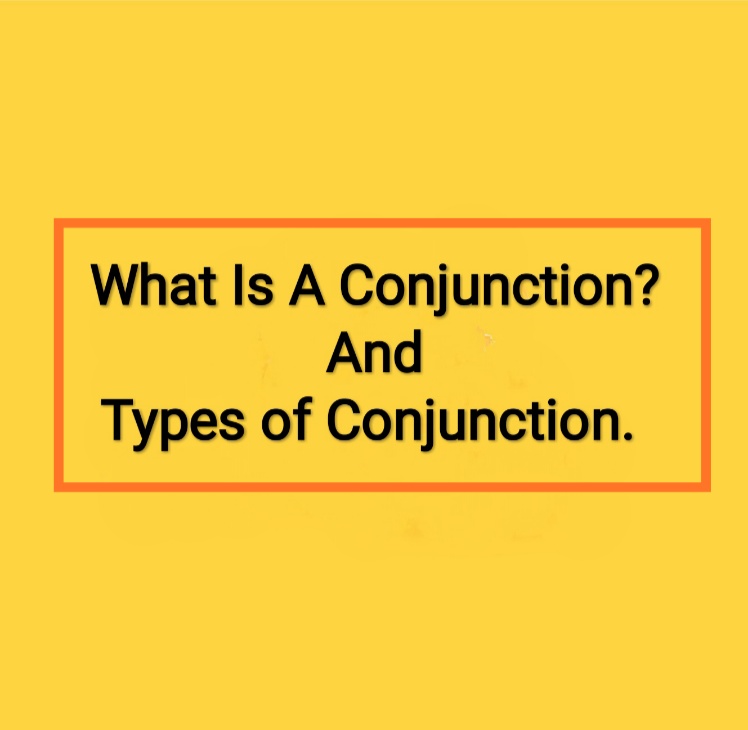What Is a Conjunction?
A conjunction is the adhesive that holds words, phrases and clauses (both dependent and independent) together. There are 3 different types/ kinds of conjunction- coordination, subordination, and reciprocity- each serving its own, individual purpose, but everyone works to bring words together.
Thanks for the conjunctions, we don't have to write short, pressed sentences. We can extend our line with such simple words "and" or "but" and perhaps a comma or two. What is a conjunction? It is a joiner and much more. Three (3) kinds of conjunctions are Coordinating Conjunctions, Subordinating Conjunctions, Correlative Conjunctions. Let us learn the kinds and examples of conjunctions and their proper use.
What are The Types of Conjunctions?
In parts of the lecture lesson, you learned that conjunctions are one (1) of the nine (8) parts of speech. Now it’s time to look at different types of conjunctions.What Is a Coordinating Conjunction?
This is probably the most common of the three (3) types of conjunctions. Main function/ work of coordinating conjunctions is to put words, phrases, and clauses together, which is usually grammatically equal. In addition such conjunctions are placed within words or groups of words that connect to each other, and not at the beginning or end.Coordinating Conjunction Examples:
In the following examples, the Coordinating Conjunctions are diagonal for easy identification.
- We went to the field and enjoyed the football match.
- Do you want an ice cream and chocolate?
- Go away and never you come back.
- Adam fell asleep, so Joaquin just went to home.
- I don’t like spaghetti, but I can eat lasagna any day.
- You can eat your cake with a spoon.
- I go to the park every Friday, for I long to see his face.
- Julian eats healthy, for she wants to stay in shape.
- My husband sent me rose flowers, for he loves me.
- Let’s fight about the past, for today is a new day.
What is a Correlative Conjunction?
Correlative conjunctions are tag-team connections. These come in pairs, and to make them work you have to use both of them in different places in one sentence. These conjunctions work/ function together (co-) and relate one (1) sentence to another. Correlative conjunctions connect two (2) equal grammatical terms. So, if a noun follows "both", then a noun also needs to and should follow "and".The correlative conjunctions are not only- but also, either- or, both- and, neither- nor, not- but, and whether- or etc.
Correlative Conjunction Examples:
In the following examples, the Correlative Conjunctions are diagonal for easy identification.
- She/ he is both intelligent and beautiful.
- Neither Alex nor Robin can play football.
- Both rugby and football are popular in Brazil.
- I want both ice cream and juice.
- She/ he ate not only the ice-cream but also the chocolate.
- He/ she is not only intelligent, but also very funny.
- Bowling is not as fun as skeet shooting.
- Jeba is neither rich nor famous.
- Jhon screams both loudly and like a girl.
- There are as many curtains as there are doors.
- Either the cat broke the plate, or the glass was broken by the cat.
What Is a Subordinating Conjunction?
An Subordinating Conjunction always introduces a dependent stream, binding it to an independent stream. A dependent clause is a group of words that cannot stand alone as a whole sentence. In contrast an independent clause can stand alone as a complete sentence.Dislike coordinating conjunctions, subordinate conjunctions can be often come first (1st) in the sentence. This is due to the nature of the relationship between dependent and independent streams.
In English, there are many of subordinating conjunctions. Here are the most common examples: Than, after, how, although, when, if, that, as, in order that, though, where, which, as much as, inasmuch as, unless, while, because, provided, until, who/ whom, since, what, before, whoever/ whomever.
Subordinating Conjunction Examples:
In the following examples, the Subordinating Conjunctions are diagonal for easy identification.
- Although I’m going to job, I’d much rather stay house.
- When the doorbell rang, my cat Skeeter barked loudly.
- Before we leave the house, I had had my lunch.
- If they come, we can start classes on Saturday.
- Alexander started to dig as if his life depended on it.
- When she was washing my car, I went to the store.
- Even though the weather was terrible, they went outside.
- Sofia cried as though she were a baby.
- I will help the woman. She deserves it.
- The teacher reads to the learners when they have an English lesson.
- Greg stayed behind after college because he had a detention.
- Smith took his time to get a coffee, although he was late for work.
- Thomas liked chocolate whereas Sally preferred candy.
- Jarin is heading to the park today despite the rain.
Final Thoughts
Conjunctions between speech and writing are essential. They improve coordination between different parts of the text and enable you to create long sentences without awkward words. Although the concept of Conjunctions may seem very simple, you should take your time and place punctuation correctly, choose the appropriate additions and see that you follow the standard Rules of English Grammar.If you want to follow more Pars of Speech, click on this link.














No comments:
Post a Comment